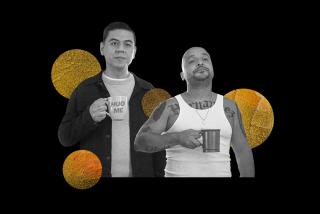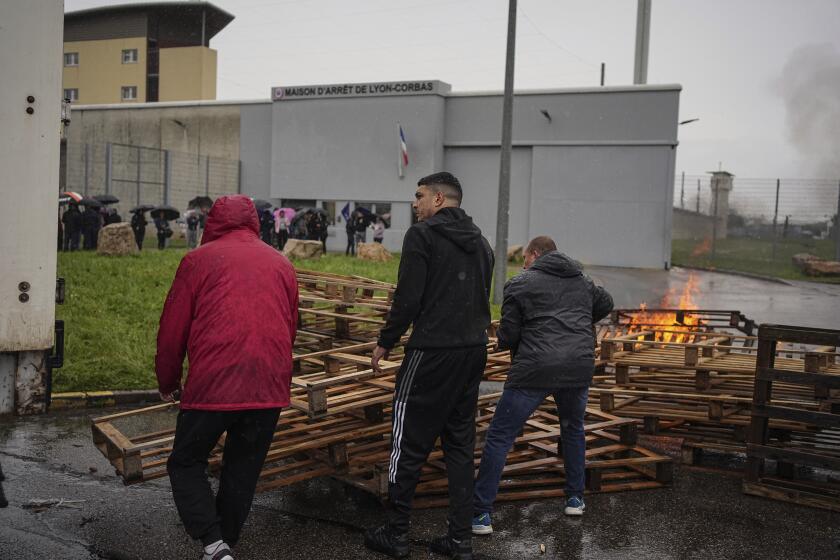Bush Plans Asia Visit in November : Diplomacy: The President meets with Prime Minister Kaifu and stresses the value of U.S. ties with Japan.
Barely two weeks before the 50th anniversary of the Japanese attack on Pearl Harbor that brought the United States into World War II, President Bush will visit Japan in November on a trip that will also take him to South Korea and Australia, he said Thursday.
Bush announced his travel plans with Japanese Prime Minister Toshiki Kaifu at his side. Kaifu was spending Thursday evening and this morning with Bush at the President’s vacation home on the Maine seashore before the two head separately to the annual summit conference of the leading industrial democracies in London next week.
The meeting was their sixth in the last two years, and the two leaders took pains to demonstrate that even as the U.S.-Japanese relationship continues to struggle over the rocks of trade differences and other financial matters, it is built on a solid foundation.
“Very candidly, there may be some elements (in Japan) of anti-American feeling, and I can’t deny that some elements in this country appear to want to bash Japan, to use a common expression,” Bush said. “So, to those in either country that might harbor concerns about the other, let me simply say this relationship is big, it’s broad, it’s strong, it transcends any one issue or another. Where there are differences, they are outweighed by the common ground that we share and the common objectives that we share.”
Kaifu echoed the President’s assessment, saying: “When it comes to Japan-U.S. relations, we believe that instead of bashing each other, we should be . . . basking together, looking ahead in the same direction.”
One of the most recent differences involved Japan’s contribution to the allied effort in the Persian Gulf War. Japan is barred by its constitution from sending military forces to overseas engagements, but it promised a $9-billion contribution.
The final $500 million was reportedly transferred, by wire, in conjunction with Kaifu’s visit after a dispute was ironed out over whether Japan had committed itself to paying $9 billion--or slightly less as a result of fluctuation in the dollar value of the yen. The additional $500 million reflected Japan’s acceptance of the argument that it owed the full amount.
“I believe that matter is totally resolved,” Bush said. “Any differences that might have existed between the United States (and Japan) have been resolved.”
However, Bush made it clear that there has been no similarly amicable resolution of the dispute over Japan’s reluctance to eliminate its barriers to foreign-grown rice, as the United States and other countries have been urging during global trade-liberalization talks in Geneva. Greater access to the Japanese market could benefit rice growers in California.
“On the question of rice and agriculture generally, we’ve just determined to keep working on that. There are differences. No question about that,” Bush said.
Another area of potential difference involves what is likely to become the central focus of the London summit: financial assistance for the Soviet Union.
Kaifu made it clear that the dispute over four islands in the southern Kuriles off Japan’s northernmost main island of Hokkaido remains an obstacle to Japanese assistance for Moscow. The Soviet Union took control of the islands at the end of World War II; Tokyo claims them as Japanese territory.
In addition, the prime minister said, “It is important to first sound out what are the wishes of the Soviets, and we would have to know more clearly what the economic state of that country is, (what) the political situation is there.”
The Asian trip in November will be Bush’s second as President to Japan and South Korea, and his first to Australia since taking office. On the way home, he is expected to stop in Hawaii for ceremonies marking the 50th anniversary of the Pearl Harbor attack of Dec. 7, 1941.
The apparently easygoing tenor of the meeting Thursday was reflected in Bush’s invitation to Kaifu as the news conference ended.
“Toshiki,” he said, “I would like to invite you to go out on my boat, and we’ll look at some of our natural resources, the seals.”
As for the reporters nearby, he said, “We will come tearing by and give you a wave, and you can eat your hearts out.
“Bar, we’re going,” Bush called out to his wife, Barbara, who was lounging on the grass of their back yard with Kaifu’s wife, Ashiyo.
More to Read
Start your day right
Sign up for Essential California for news, features and recommendations from the L.A. Times and beyond in your inbox six days a week.
You may occasionally receive promotional content from the Los Angeles Times.






